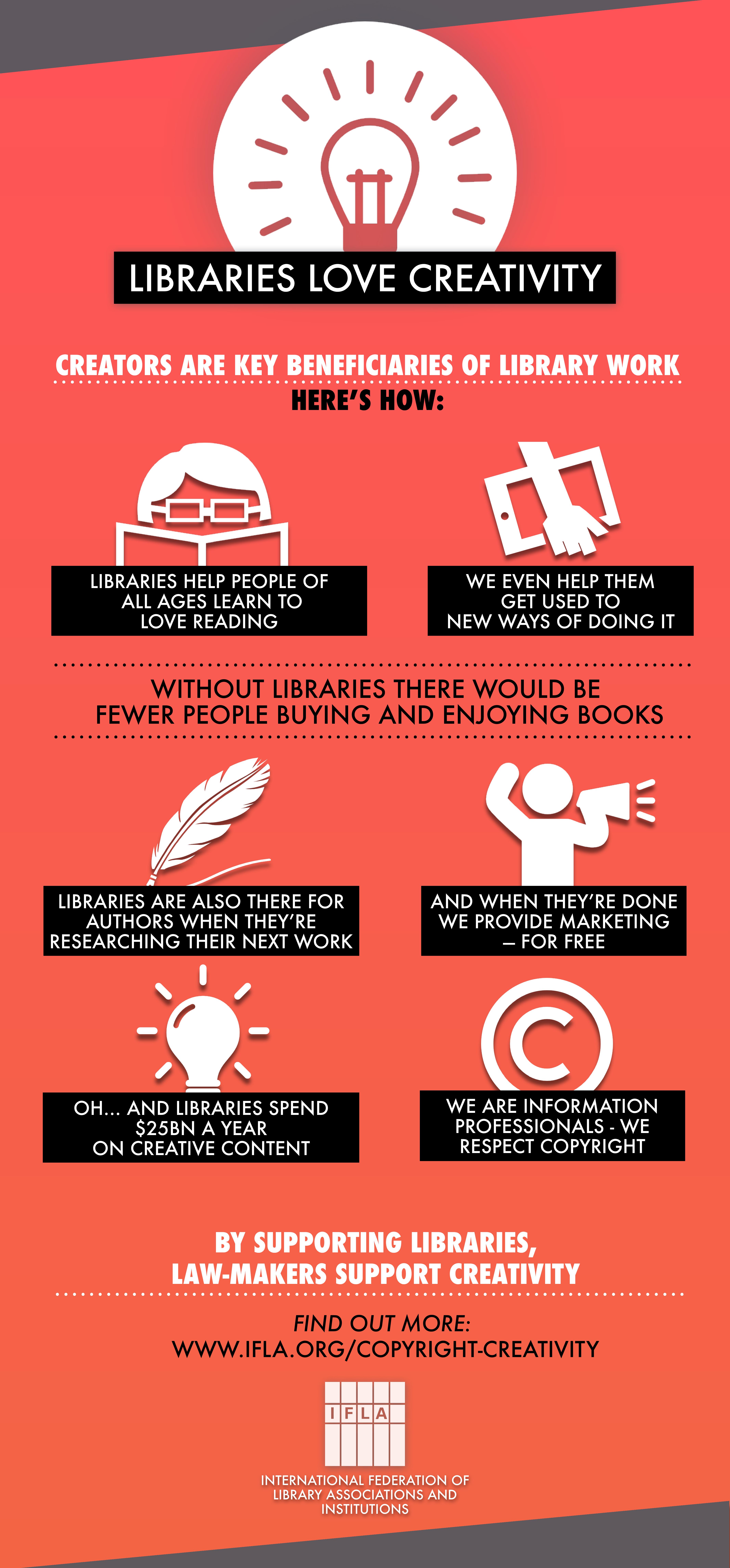Libraries, Copyright and Creativity
 Libraries have been associated with creativity for almost as long as books themselves. Their function – promoting human progress by collecting, preserving, and giving access to works of science and imagination – makes them the homes of the giants on whose shoulders Newton claimed to stand.
Libraries have been associated with creativity for almost as long as books themselves. Their function – promoting human progress by collecting, preserving, and giving access to works of science and imagination – makes them the homes of the giants on whose shoulders Newton claimed to stand.
Copyright of course is a much younger concept, but its original underlying goal – to support both creators and the broader public interest – is a familiar one for libraries.
Libraries role in supporting innovators and communities is broadly recognised. But we also support creators, not only by promoting literacy at all ages and levels, but also by giving people a love of reading. In both developing and developed countries, libraries are often still the only place where people who don’t have the necessary resources (or technology) can access books and digital information.
In addition to broadening their potential audience, we also offer more direct help to authors. Writers repeatedly underline how much they have benefited from library resources in researching future works. And post-publication, libraries offer a crucial outlet for discovery – they allow readers to take a risk with an unknown author. If they like it, there’s a good chance they’ll buy next time.
Finally, of course, libraries pay for their books and digital content – almost $30bn worldwide in 2016. This doesn’t include the money paid to authors in countries with a public lending right. For many writers and their publishers, this is a key source of revenue.
As such, libraries are an excellent example of how the dual goals of copyright can be achieved. Creators benefit, but so too does the population as a whole from access to information and culture.
Libraries function, where the law permits, thanks to a set of exceptions and limitations to the control granted by copyright. This is what lets them allow people to read books on site or at home without getting permission each time, copy them for preservation purposes, and share them with libraries which do not have a copy. This isn’t a give-away. As mentioned above, libraries pay, not only through direct spending, but also through support for reading and free marketing for writers. And of course, they are not for profit.
However, in dozens of countries, there are no exceptions and limitations for libraries. These are often the ones where the need for help with literacy is the greatest. In many others, protections for libraries are patchy at best. Even those countries with a full set of exceptions and limitations will need to act to take account of the fact that more and more information is online, rather than on the page. And finally, inconsistent rules across borders make it hard for libraries to cooperate internationally, placing a brake on international research and cultural exchange.
IFLA, and the library community as a whole, has long been active in supporting reforms which support creators and users. Change that benefits only one side benefits no-one at all in the long run.
To this end, we are present at the World Intellectual Property Organisation (WIPO), arguing for international legal standards for library exceptions, as well as in national and regional discussions around the world. We encourage all who work with and benefit from libraries – writers, publishers, teachers, researchers, policy-makers, and citizens in general – to support us in this.